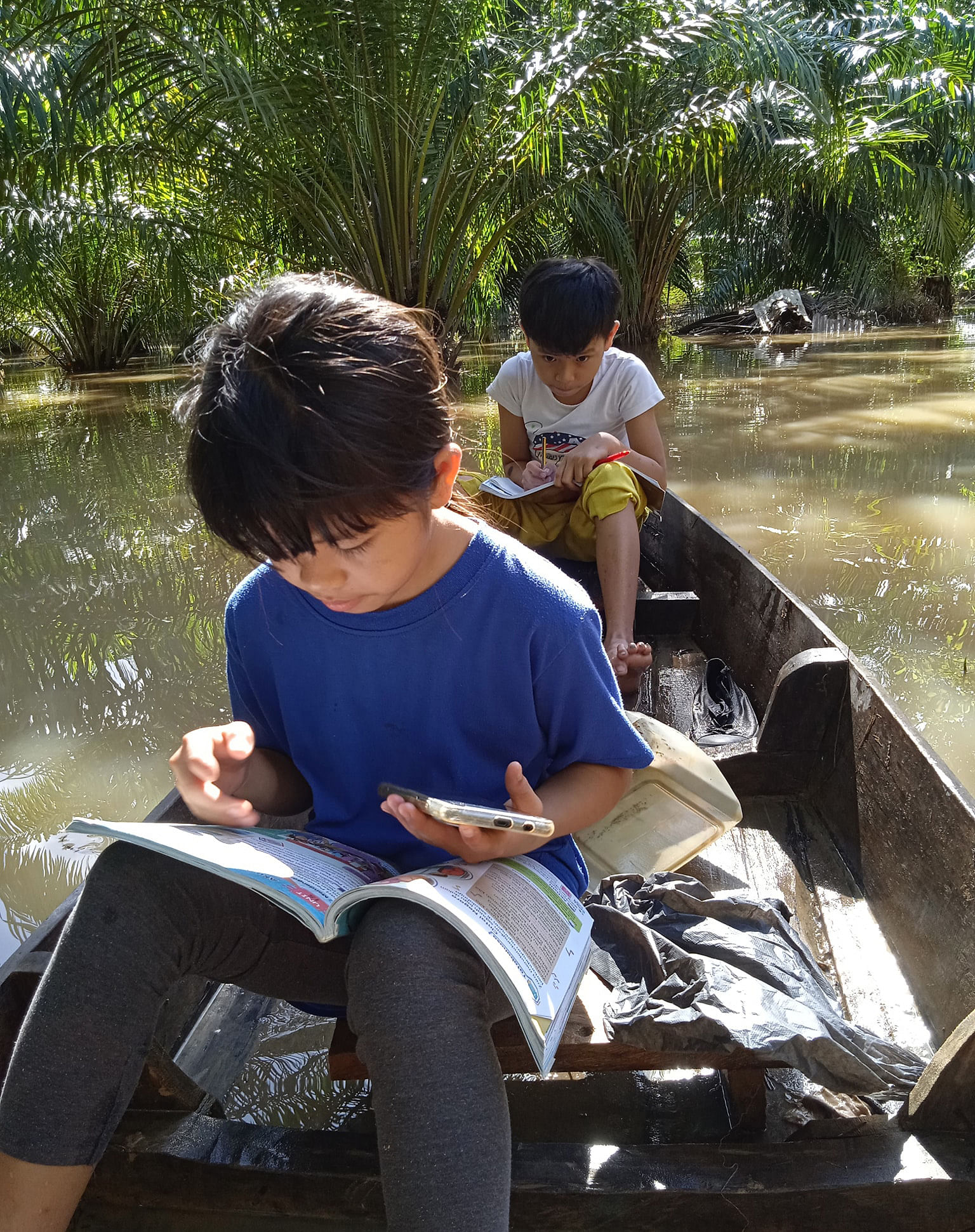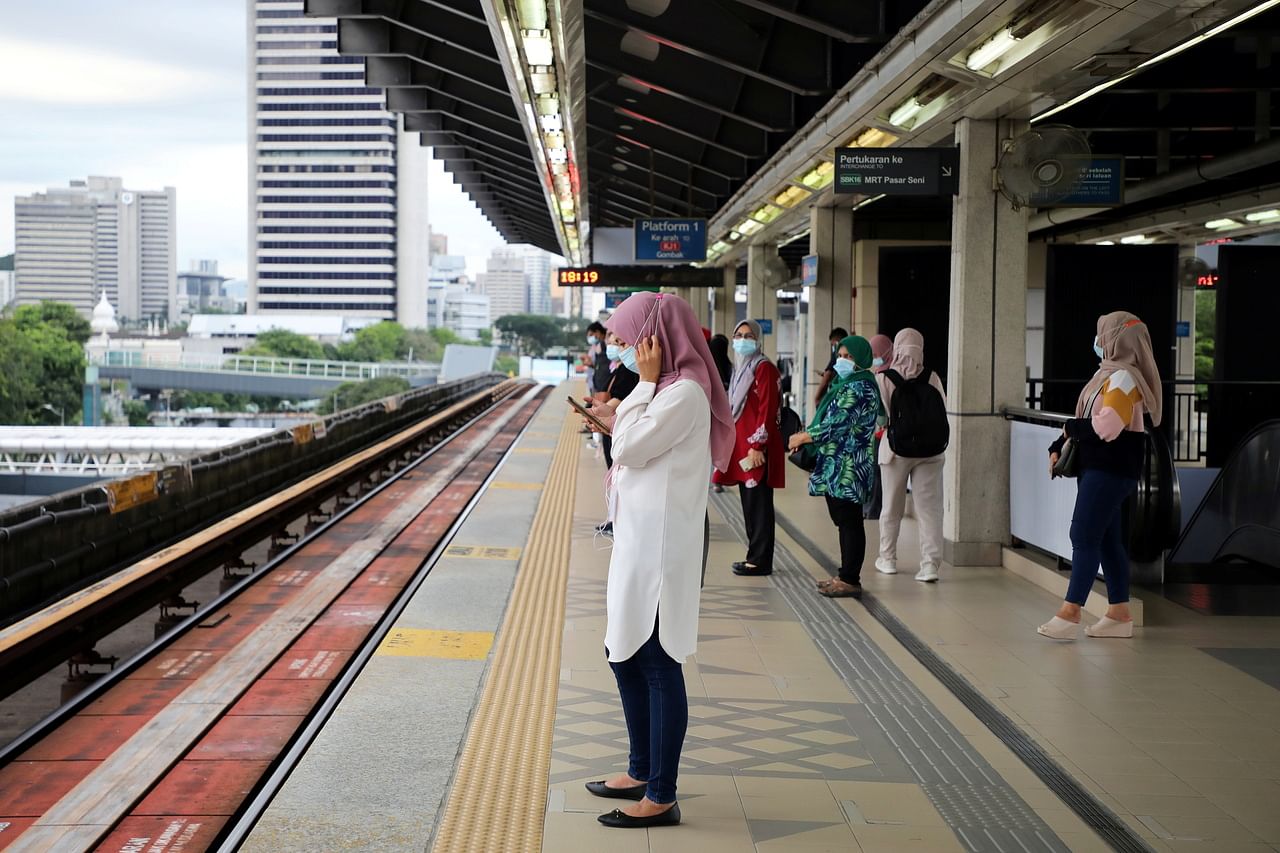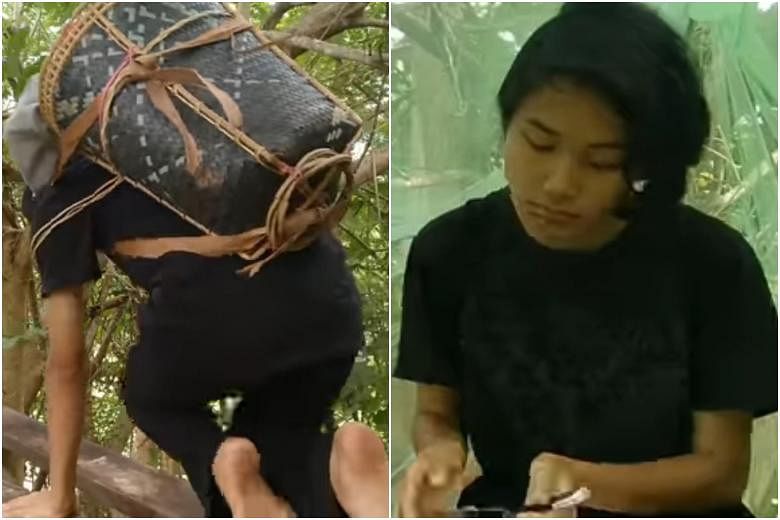KUALA LUMPUR - In a YouTube video that went viral in June, 18-year-old Veveonah Mosibin, who lives in a village in remote Pitas district in the east Malaysian state of Sabah, on Borneo island, showed how she had to trek up a hill and slept on a tree just to get an Internet signal for an examination online.
In November, eight students in the same state, who would meet on a suspension bridge to get Internet access for their online classes, narrowly escaped death after plunging 18m when the bridge collapsed. One of them suffered spinal injuries.
Canteen worker Suzianah Bidin, 32, who lives in a village near Beaufort, in interior Sabah, said her three children had to walk to a river, about 45 minutes from home, to access the Internet.
"There is no Internet service at my house. My village was flooded last month, and I had to take my children to the river in a small boat for their lessons as the water was chest-high," Madam Suzianah told The Straits Times.
The children take turns using her mobile phone or that of her husband for classes as she cannot afford new devices for them.
Flip-flop rulings on the reopening of schools are a major headache for parents and students, especially those without broadband access.
Hopes for a return to the classroom last month were dashed after the government reversed the planned move nationwide as the country battled a fresh wave of Covid-19 infections which persisted despite the re-imposition of tougher restrictions under the so-called movement control order (MCO).
Some four million students nationwide were forced to resume virtual learning, except for those sitting for major exams, but this has been impossible for some.
Malaysia's household Internet penetration rate improved from 87 per cent in 2018 to 90.1 per cent in 2019 but the media continues to be littered with reports of students climbing trees or hills for better reception, just so they can keep up with online classes during the Covid-19 pandemic.
Critics have urged the government to take immediate action.
"What lesson has our government learnt from all these mishaps, and what is their plan to assist students who do not have Internet access? This issue is especially pressing for students in interior areas where DSL, cable, or fibre internet options are not available. Is our government prepared to provide free satellite Internet data packages for them?" asked Mr Teo Nie Ching, the former deputy education minister in the Pakatan Harapan government.
Even users in the Klang Valley have complained of slow Internet connectivity.
Project manager Khadijah Ain who lives in Shah Alam, Selangor, said some of her son's teachers seemed to suffer technical issues, with video lags and choppy audio.
"It could be due to the high volume of traffic now. Ever since the MCO started last year, there have been issues with the Internet. The bandwidth can't cope," she said.
The problem is acute in some areas, according to an expert.
"One issue that is widely recognised is the lack of high quality internet infrastructure in rural and remote areas of the country," Dr Rachel Gong, senior research associate at Khazanah Research Institute, told The Straits Times.
Another issue is the quality of connectivity, where download speeds are significantly lower than network speeds reported by service providers, especially during the MCO, she added.
State telecommunications firm Telekom Malaysia (TM) recorded a 15 per cent increase in overall Internet traffic usage since the inception of the second MCO, which came into force on Jan 13. The MCO was first imposed in March last year and most restrictions under this order were lifted by June.
In remote areas in states like Sabah, the issue boils down to a low fixed broadband penetration rate.

"When a household is surveyed and asked if anyone has Internet access, about 90 per cent of households in Malaysia answer 'yes, someone does' because that's roughly the same percentage of people who have a smartphone. But it does not necessarily mean that everyone in the household has Internet access, or that Internet access is of high quality," said Dr Gong.
More people in Malaysia connect to the Internet using a mobile device and a mobile data plan rather than using a computer with a fixed broadband connection, she noted.
Data from the regulator, Malaysian Communications and Multimedia Commission (MCMC), shows that fixed broadband penetration rates at 34.5 per cent as at the second quarter of 2020.
In Sabah, the figure is only 16.1 per cent, one of the lowest in Malaysia, second only to Kelantan, with a mere 12.2 per cent fixed broadband penetration rate.
On the other hand, Malaysia's mobile broadband penetration rate is 116.7 per cent, while Sabah, is at 78.8 per cent, the lowest in the country.
Compared with 4G connection in Malaysia, fixed broadband generally offers better speeds and greater reliability, but in states like Sabah, where households are larger and more rural, fixed broadband or strong network performance is harder to find, said Dr Gong.

The government aims to roll out better connectivity and coverage to all Malaysians by 2025 under the RM21 billion (S$6.9 billion) National Digital Network (Jendela) plan.
Sabah is set to receive nearly 400 new communication towers by 2022, while 924 existing transmitters will be upgraded.
In the meantime, though, Madam Suzianah is hoping for the best.
After she posted photographs of her children on social media, she said that MCMC officers visited her village. They promised that a communication tower will be built in the village this year.


